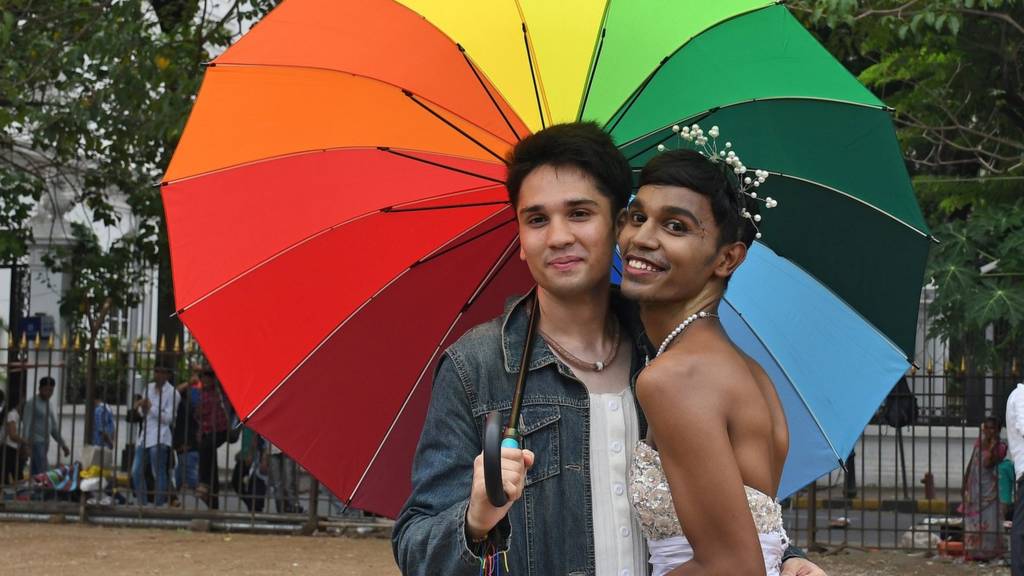Supreme Court’s Verdict on Marriage Equality and Adoption Rights for Queer Couples

Supreme Court's Verdict on Marriage Equality and Adoption Rights for Queer Couples
The recent judgment by the Supreme Court of India on marriage equality and the adoption rights of queer couples has sparked significant debate and discussion across the country. In a closely watched case, the Court ruled against granting adoption rights to same-sex couples, with a 3-2 majority decision. This verdict has profound implications for the LGBTQ+ community and the ongoing quest for equal rights and recognition.
Background:
The case originated from a petition seeking marriage equality and adoption rights for queer couples, challenging the constitutional validity of certain laws that were seen as discriminatory. The petition argued that LGBTQ+ individuals and couples should have the same legal rights as their heterosexual counterparts. It was a landmark case that promised to address critical issues related to personal freedoms and equal rights in India.
The Verdict:
In a 3-2 majority decision, the Supreme Court ruled against granting adoption rights to queer couples. While the court upheld the fundamental right to marriage for same-sex couples, it held that there was no corresponding right to adopt children.
Key Points from the Verdict:
- Marriage Equality Upheld: One significant aspect of the verdict was the Court’s recognition of the fundamental right to marriage for LGBTQ+ individuals. This aspect of the judgment marked a positive step towards recognizing equal rights for all, regardless of sexual orientation.
- Adoption Rights Denied: However, the disappointment for many LGBTQ+ advocates and activists came with the Court’s decision to deny adoption rights to same-sex couples. The Court argued that allowing queer couples to adopt children was not in the best interest of the child and cited various social and psychological reasons.
Debate and Controversy:
The verdict has ignited a fierce debate and stirred controversy within the country. While LGBTQ+ activists and supporters argue that the denial of adoption rights is a significant setback for equal rights, others, including some religious and conservative groups, have welcomed the decision.
Supporters of the Verdict:
- Child Welfare Concerns: Those who support the verdict argue that the Court’s decision aligns with the best interests of the child. They contend that a traditional family structure consisting of a male and female parent is more conducive to a child’s upbringing.
- Cultural and Moral Values: Some proponents of the verdict argue that it upholds traditional cultural and moral values that have deep roots in Indian society. They believe that recognizing marriage equality but denying adoption rights strikes a balance between progressive change and preserving cultural norms.
Critics of the Verdict:
- Discrimination and Inequality: LGBTQ+ advocates and human rights organizations assert that the verdict perpetuates discrimination and inequality. They argue that denying adoption rights to queer couples is a violation of their fundamental rights.
- Missed Opportunity: Many critics believe that the Court missed a golden opportunity to make a progressive and inclusive decision in line with global trends towards recognizing LGBTQ+ rights. They argue that this verdict is a step backward in the fight for equal rights.
The Path Forward:
While the verdict has disappointed many LGBTQ+ activists, the fight for equal rights is far from over. Several key aspects must be considered as India moves forward:
- Advocacy and Awareness: The verdict has ignited a renewed sense of purpose among LGBTQ+ activists and allies. Advocacy and awareness campaigns are expected to gain momentum, aimed at changing societal attitudes and advocating for equal rights.
- Legislative Action: One potential path forward is for the Indian government to consider legislative changes to address the concerns raised by the Supreme Court’s decision. This would require a comprehensive review of adoption laws and the recognition of the rights of LGBTQ+ individuals.
- International Comparisons: Many nations have already embraced marriage equality and adoption rights for same-sex couples. The experiences of these countries can serve as valuable references for India’s policymakers as they contemplate further reforms.
Conclusion:
The Supreme Court’s recent judgment on marriage equality and adoption rights for queer couples has ignited intense debate and controversy. While the recognition of the fundamental right to marriage is a positive step towards equality, the denial of adoption rights has left many LGBTQ+ individuals and advocates disappointed. The fight for equal rights and recognition is far from over, as activists, allies, and policymakers continue to work toward a more inclusive and just society that embraces diversity and ensures equal rights for all its citizens.







